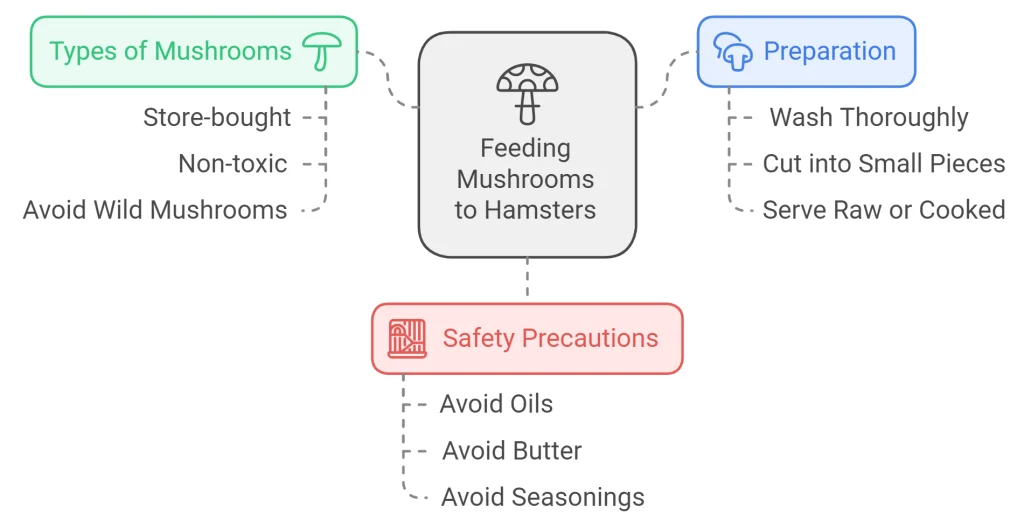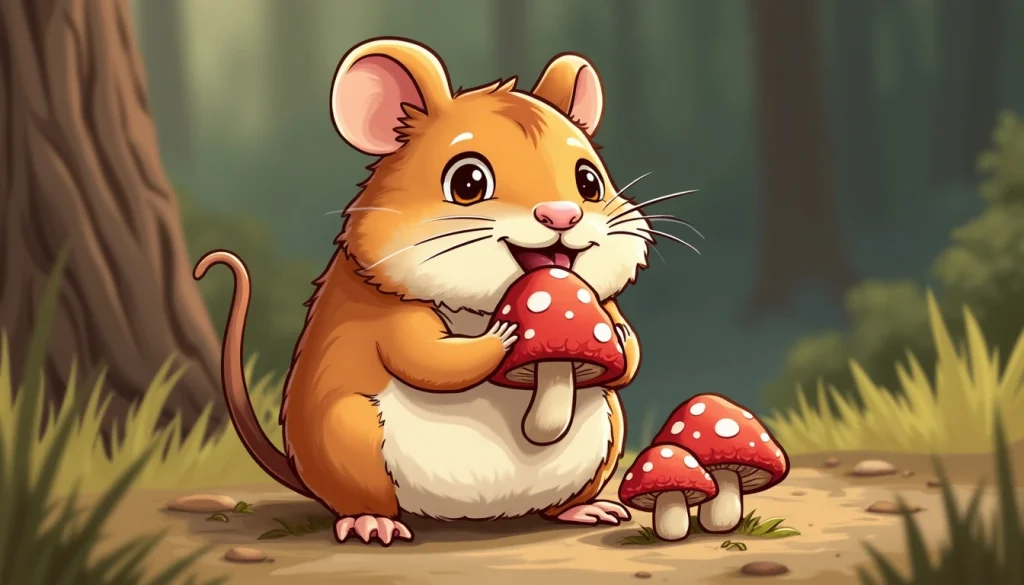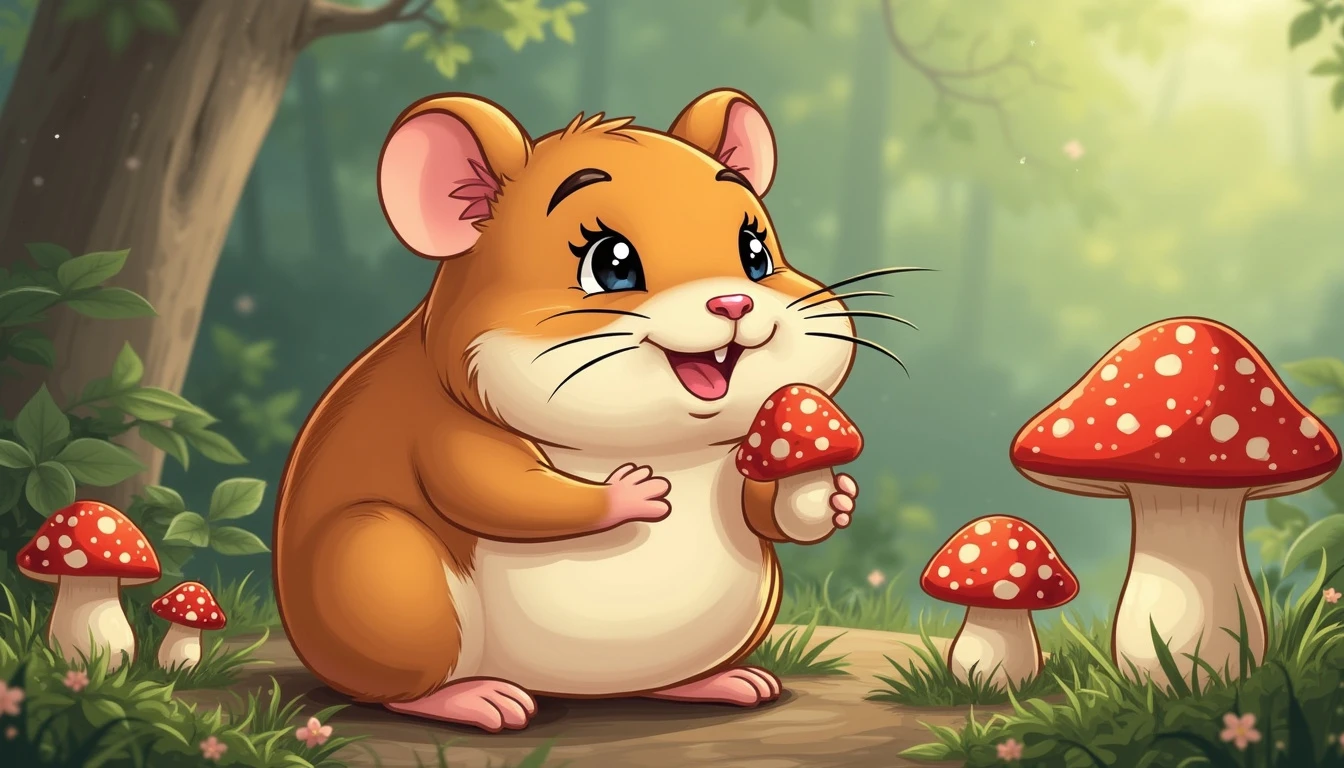Can hamsters eat mushrooms? The answer is yes, but with a few important precautions. While mushrooms may seem like a harmless treat, it’s essential to know that not all mushrooms are safe for your pet. Feeding the wrong type or preparing them incorrectly can pose serious health risks. In this blog, we’ll explore what types of mushrooms are safe and how to offer them properly to your hamster to ensure their well-being.
Can Hamsters Eat Mushrooms?

Yes, hamsters can eat mushrooms, but strict conditions must be met to ensure their safety.
Types of Mushrooms:
Only store-bought, non-toxic mushrooms should be fed to your hamster. Wild mushrooms can be highly toxic and are never safe for your pet, so it’s critical to avoid them entirely.
Preparation:
Before offering mushrooms to your hamster, make sure to wash them thoroughly and cut them into small, manageable pieces. Mushrooms can be served either raw or cooked, but avoid adding any oils, butter, or seasonings, as these can be harmful. Simplicity is key when it comes to feeding mushrooms to your hamster—keep them plain and clean to prevent any adverse effects.
Nutritional Benefits
Mushrooms can be a light, low-calorie snack for your hamster. As they are naturally low in fat and calories, they won’t contribute to weight gain when given in moderation. Additionally, mushrooms contain several important nutrients, including B vitamins (which support energy production), selenium (a powerful antioxidant), and potassium (which aids in muscle function). These nutrients can benefit your hamster’s overall health, though their primary diet typically meets their nutritional needs. Therefore, mushrooms are more of an occasional treat rather than a necessity.
Risks Involved

While mushrooms offer some benefits, there are notable risks to be aware of when feeding them to hamsters:
- Toxicity Concerns: Many mushrooms, particularly wild varieties, contain natural toxins that can be harmful or even fatal to hamsters. Even store-bought mushrooms that are safe for humans may not always be suitable for pets, making caution essential.
- Digestive Issues: Hamsters have delicate digestive systems that may not tolerate unfamiliar foods well. Mushrooms, if overfed or improperly prepared, can cause stomach upset, diarrhea, or other gastrointestinal problems.
- Lack of Specific Research: There is limited scientific research on the direct effects of mushrooms on hamsters. This uncertainty raises concerns, as even foods that seem safe might carry unknown risks. Due to this, many experts recommend avoiding mushrooms in your hamster’s diet altogether or introducing them with extreme caution.
Expert Recommendations
Veterinarians generally advise caution when it comes to feeding hamsters mushrooms. While small amounts of store-bought, non-toxic mushrooms may not pose an immediate threat, experts recommend focusing on safer, more familiar foods like pellets, seeds, and vegetables that are specifically designed to meet your hamster’s nutritional needs. Mushrooms are not a necessary addition to their diet, and the potential risks outweigh any minor benefits they offer.
If you decide to give your hamster mushrooms, it’s crucial to monitor them closely for any signs of digestive distress or adverse reactions. Consulting with a vet before introducing mushrooms into their diet is highly recommended to ensure the safety of your pet.
Conclusion
In conclusion, while hamsters can eat mushrooms under certain conditions, it’s generally safer to avoid them altogether. The risks of toxicity, digestive issues, and lack of research make mushrooms a questionable choice for these small pets. Instead, stick to foods that are proven to support their health and well-being, ensuring your hamster gets the nutrition they need without unnecessary risks.

